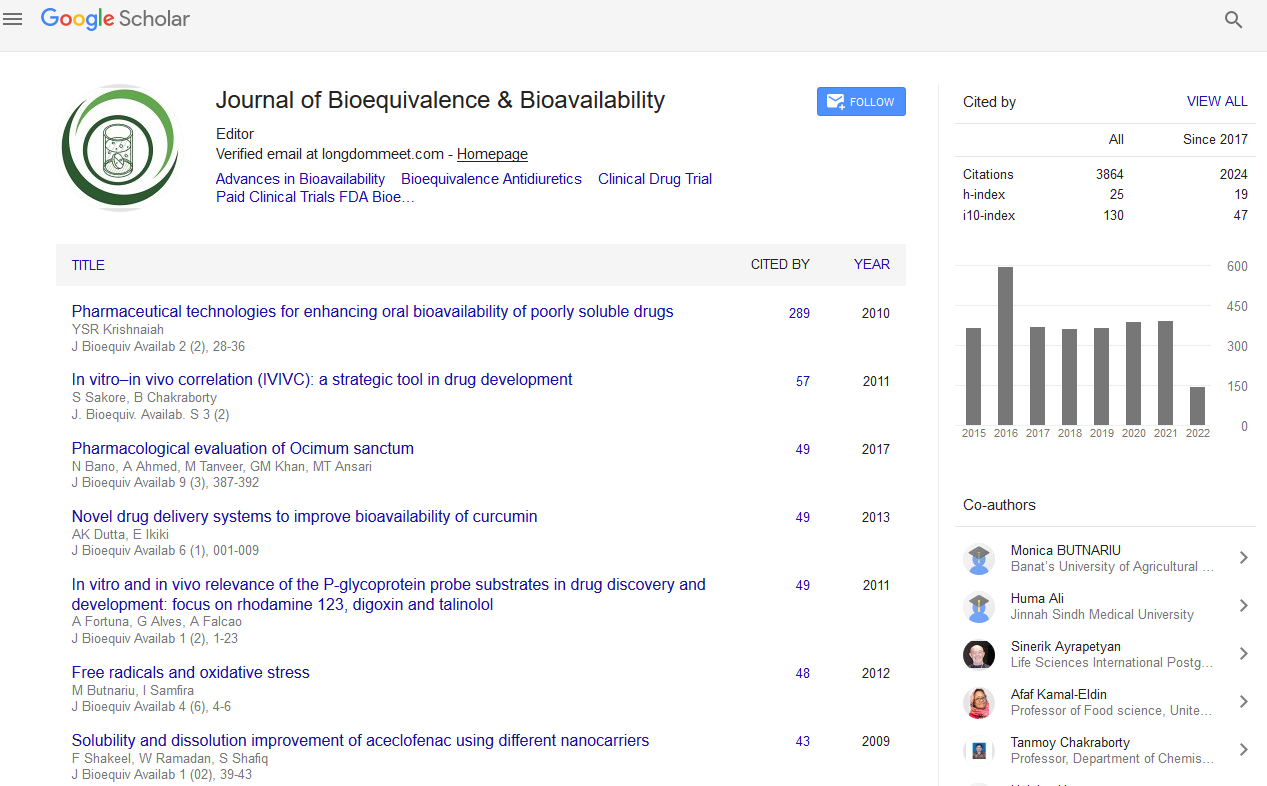PMC/PubMed Indexed Articles
Indexed In
- Academic Journals Database
- Open J Gate
- Genamics JournalSeek
- Academic Keys
- JournalTOCs
- China National Knowledge Infrastructure (CNKI)
- CiteFactor
- Scimago
- Ulrich's Periodicals Directory
- Electronic Journals Library
- RefSeek
- Hamdard University
- EBSCO A-Z
- OCLC- WorldCat
- SWB online catalog
- Virtual Library of Biology (vifabio)
- Publons
- MIAR
- University Grants Commission
- Geneva Foundation for Medical Education and Research
- Euro Pub
- Google Scholar
Useful Links
Share This Page
Journal Flyer

Open Access Journals
- Agri and Aquaculture
- Biochemistry
- Bioinformatics & Systems Biology
- Business & Management
- Chemistry
- Clinical Sciences
- Engineering
- Food & Nutrition
- General Science
- Genetics & Molecular Biology
- Immunology & Microbiology
- Medical Sciences
- Neuroscience & Psychology
- Nursing & Health Care
- Pharmaceutical Sciences
Free to sell your biosimilar? The effect of the new FDA rules
International Conference and Exhibition on Biowaivers & Biosimilars
September 10-12, 2012 Hilton San Antonio Airport, USA
D?vorah Graeser
Scientific Tracks Abstracts: J Bioequiv Availab
Abstract:
Even after obtaining regulatory clearance, can a biosimilar manufacturer sell a biosimilar drug in the US? Intellectual property (IP) and the new FDA rules present many obstacles to such sales. These obstacles fall into three major categories: trade secrets, freedom to operate (non-infringement) and patents. Trade secrets of the biosimilar manufacturer may be revealed to its most direct competition, as details of the biosimilar manufacturer?s own process may be revealed to the innovator company, as part of the new FDA rules. Freedom to operate may be blocked by submarine patents, which are US patents filed before 1995 and which remain secret until issuance. Last year, Amgen?s newly issued submarine patent (valid until 2028) for the biological drug Enbrel? surprised the world. This submarine patent is a real show stopper for companies interested in manufacturing such a biosimilar. Ascertaining FTO is also expensive and complex, as the BPCIA imposes requirements on both the innovator and biosimilar manufacturer to identify and disclose relevant patents, and conduct a back and forth discussion on the potential infringement aspects thereof. Finally, the biosimilar manufacturer needs to consider whether to attempt to protect its own intellectual property, for example for the process, through a patent, or whether to maintain this as a trade secret. Thus, biosimilar manufacturers face many more IP challenges than current generic drug manufacturers.
Biography :
D?vorah Graeser, the founder and CEO of Graeser Associates International Inc., an international healthcare intellectual property firm, has been a U.S. Patent Agent for 16 years in the biomedical field, including IP strategization for generic drug manufacturers and biotech companies. D?vorah earned a B.A. in biochemistry with honors from Harvard University and a Ph.D. in pharmacology from the University of Michigan. D?vorah was awarded two post-doctoral fellowships, at the Institute for Biomedical Computing in Washington University and at the Imperial Cancer Research Fund in London, England. She was also Vice President at Compugen Ltd, an Israeli biotech firm.


